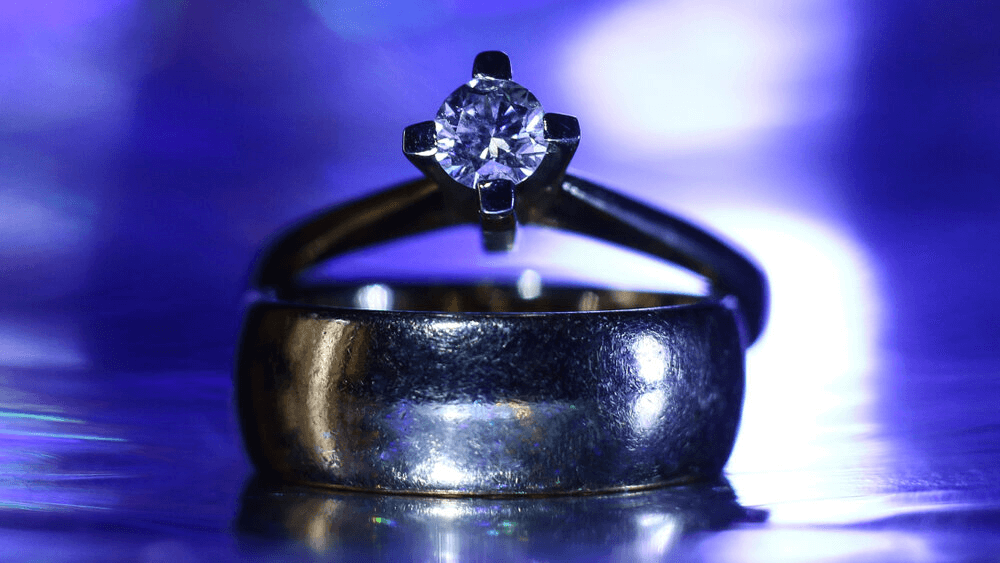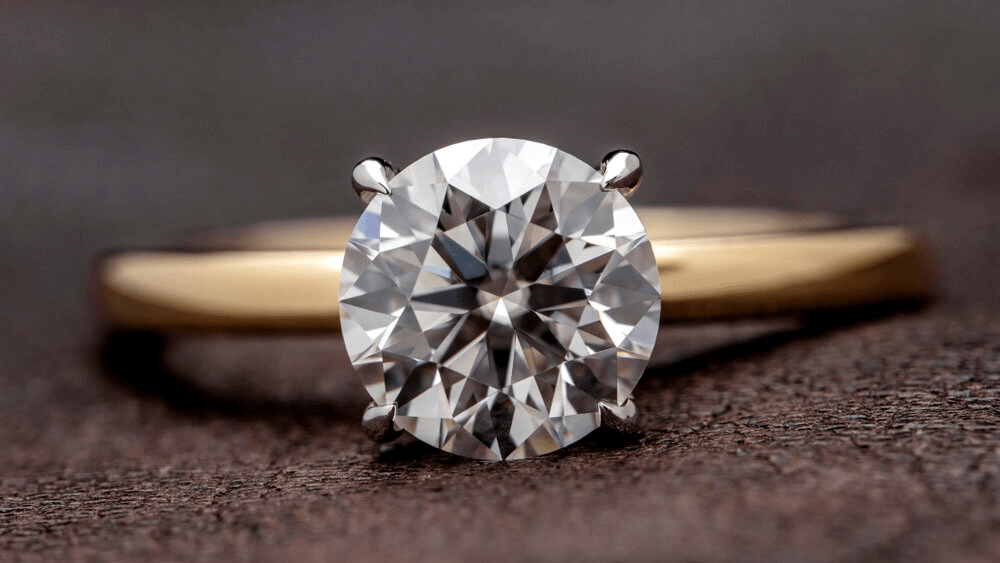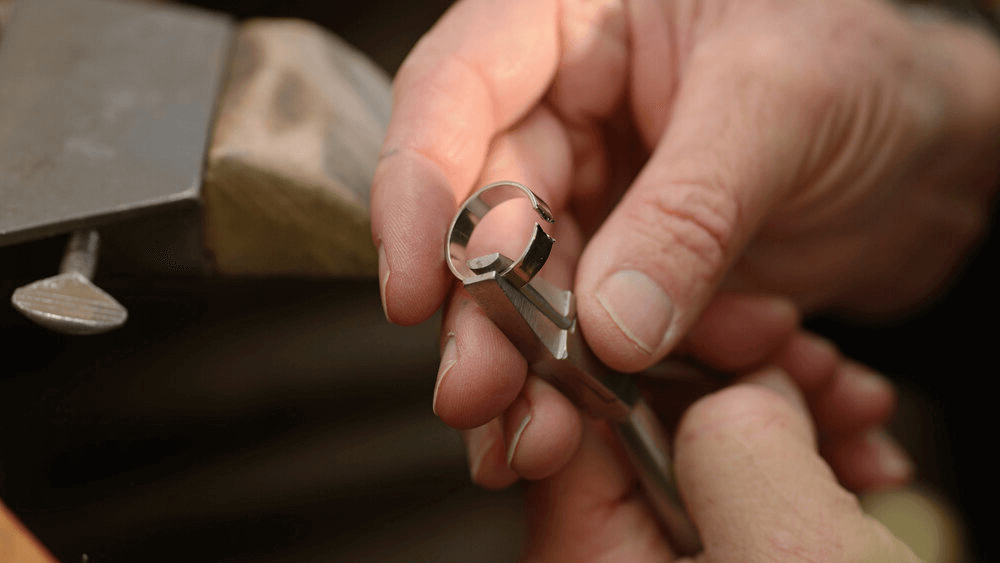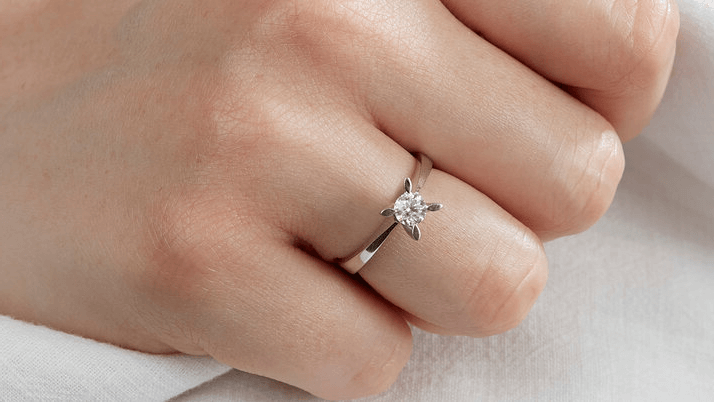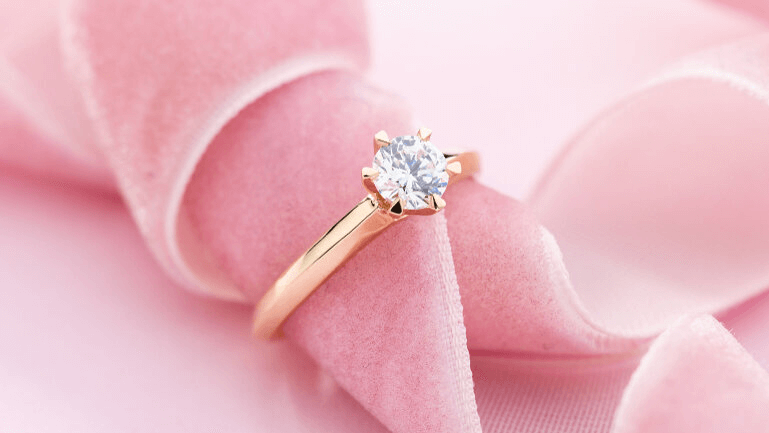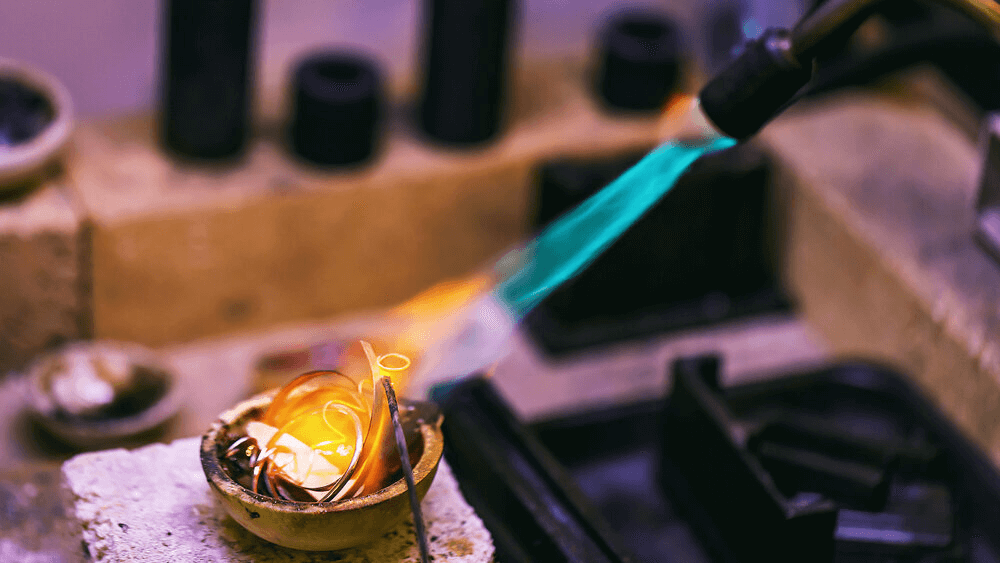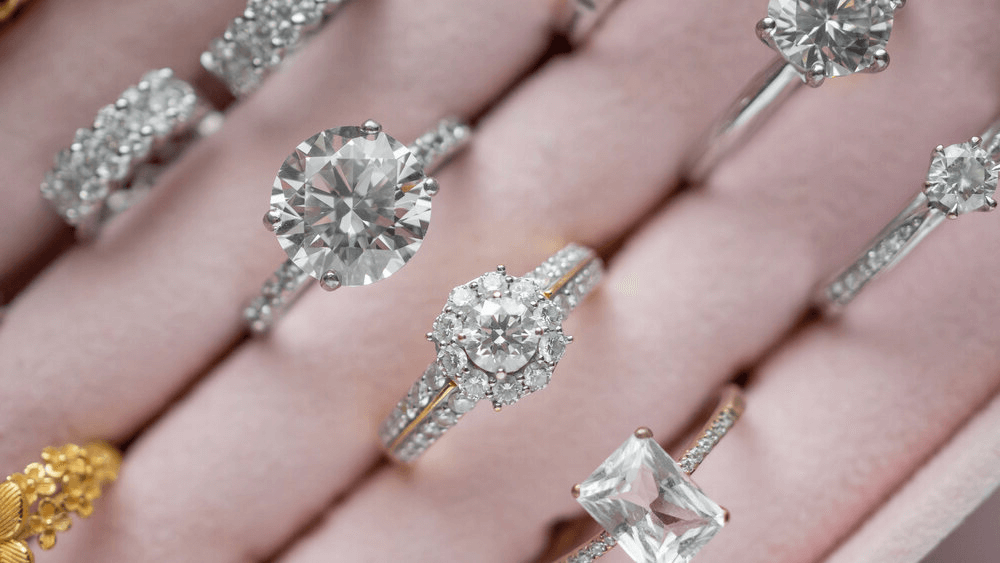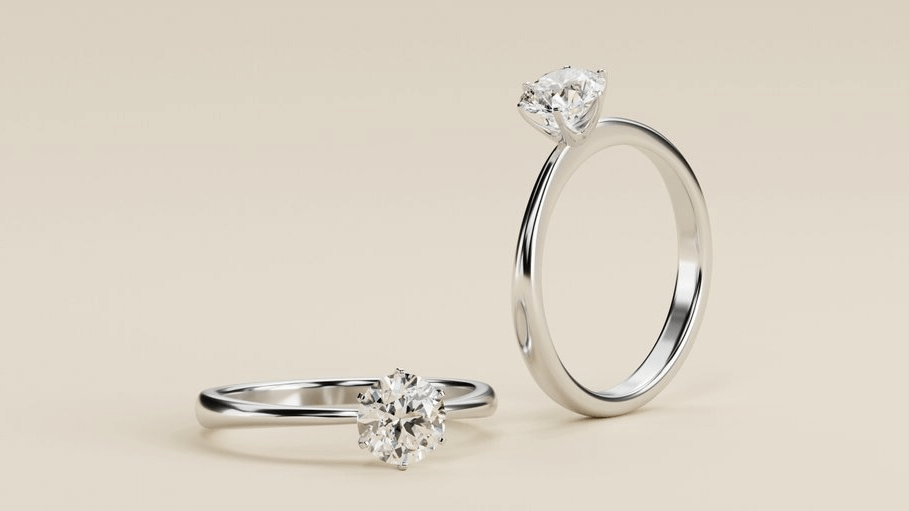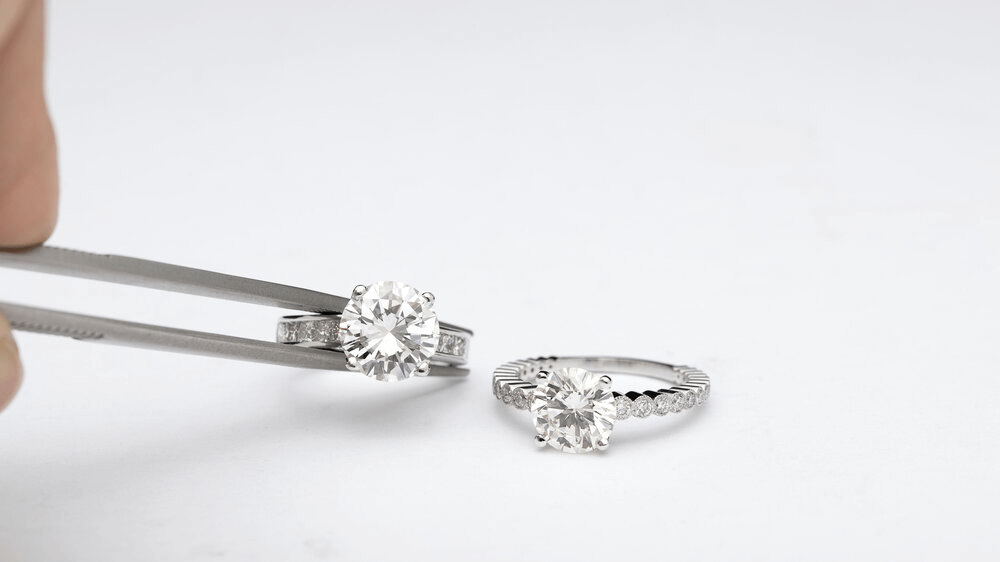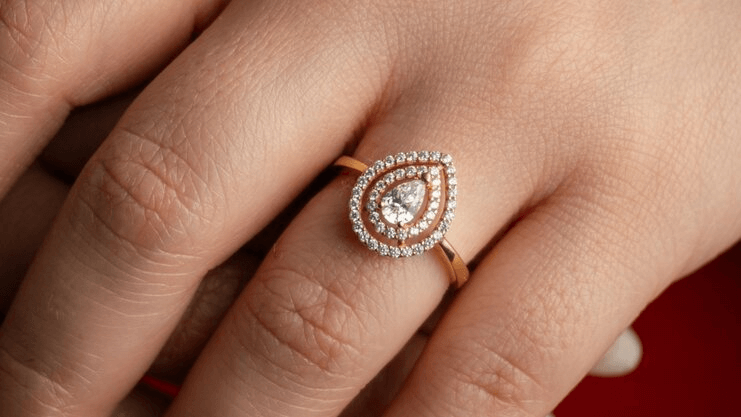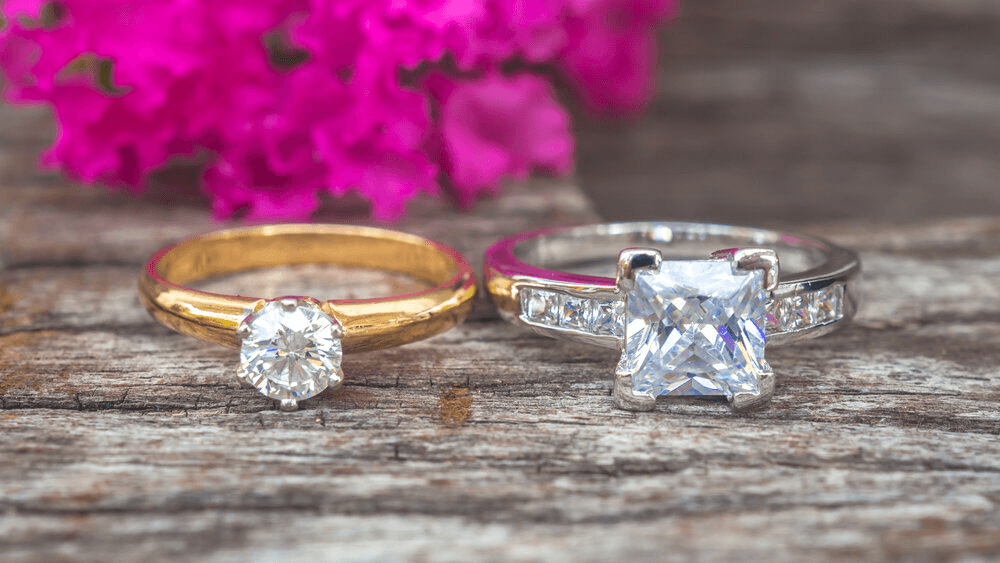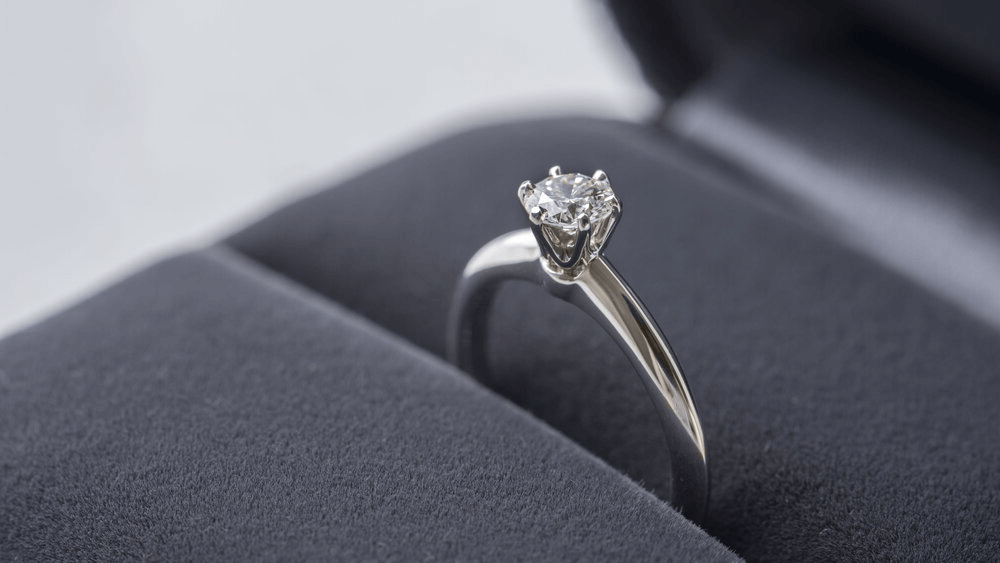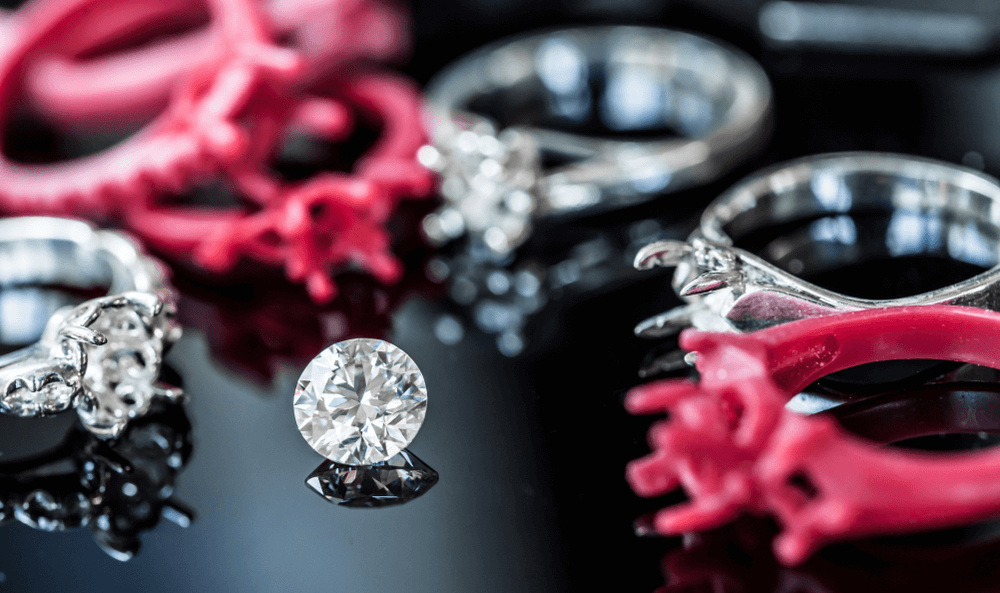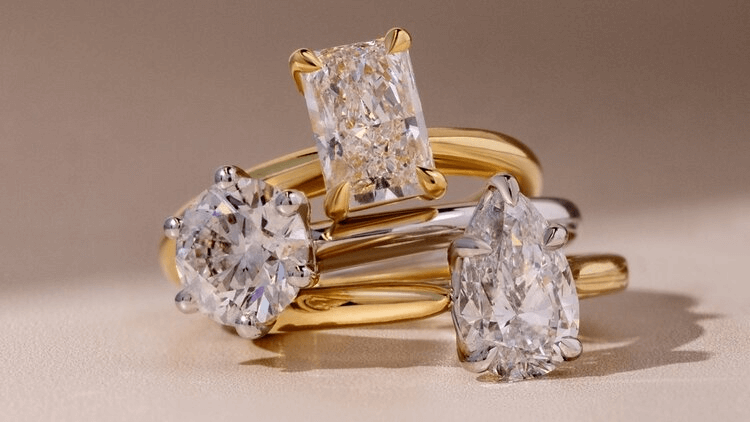Dazzle with Mixed Metal Engagement Rings

By Gary A.

Edited by Olivia H.
Published Aug 17, 2021
Edited on Mar 31, 2025
Mixed metal engagement rings are the perfect blend of tradition and modern flair, offering a unique way to make your ring truly stand out. Discover how these stunning combinations of metals can elevate your engagement ring design in our complete guide.

Navigate This Guide:
- 7 Quick Tips for Buying a Mixed Metal Diamond Engagement Ring
- Introduction
- Why Mixed Metal Engagement Rings are Gaining Popularity
- Exploring Metal Combinations
- Style Considerations
- Popular metal pairings
- Gold vs Silver
- Our Expert Take
- 10 FAQs
Before we dive deeper into the specifics, here are some practical tips to help guide your decision-making process:
7 Quick Tips for Buying a Mixed Metal Diamond Engagement Ring
- Tip 1: Assess Metal Compatibility: When selecting a mixed metal engagement ring, it’s crucial to consider how different metals complement each other. For instance, a combination of white gold and rose gold can create a delicate contrast, while yellow gold paired with platinum may offer a bolder look. Ensure the metals blend well together visually and that their physical properties, such as hardness and durability, are compatible to avoid excessive wear.
- Tip 2: Understand Metal Maintenance: Different metals require varying levels of care. For example, white gold often needs periodic rhodium plating to maintain its luster, while platinum is more durable but can develop a patina over time. When choosing mixed metals, be prepared for the maintenance requirements of each metal in the ring. This understanding will help in keeping the ring looking its best for years to come.
- Tip 3: Evaluate Design Balance: In a mixed metal engagement ring, the design should achieve a harmonious balance between the different metals. Look for designs where the metals are integrated in a way that highlights both without overshadowing the diamond. The placement of metals should enhance the ring’s overall aesthetics, such as using one metal for the band and another for the prongs or halo.
- Tip 4: Check for Skin Sensitivity: Some individuals have skin sensitivities to certain metals. Before purchasing a mixed metal ring, consider if you or your partner have any known allergies or sensitivities. For instance, nickel, often used in gold alloys, can cause allergic reactions for some people. Opt for hypoallergenic metals like platinum or high-karat gold to avoid potential issues.
- Tip 5: Consider Lifestyle and Wear: Think about the wearer’s lifestyle when choosing a mixed metal ring. If the ring is going to be worn daily and subjected to rigorous activities, opt for metals that are more resistant to scratches and dents. For example, platinum is more durable than gold, making it a good choice for someone with an active lifestyle.
- Tip 6: Analyze Color Contrast with the Diamond: The color of the metals in the ring can impact how the diamond appears. A yellow gold setting can impart a warmer tone to the diamond, while platinum or white gold can enhance the stone’s brilliance. When choosing a mixed metal ring, consider how the metal colors will interact with the diamond’s color grade to maximize its visual appeal.
- Tip 7: Future Resizing Considerations: Be aware that resizing a mixed metal engagement ring can be more challenging than resizing a ring made of a single metal. This is due to the different properties and melting points of the metals involved. Discuss resizing options with the jeweler beforehand to ensure that the ring can be adjusted in the future if needed.
Now that you’ve got these practical tips, use Jeweler AI below to find the perfect engagement ring that suits your style and budget:
Introduction
In spite of the fact that most engagement rings given and worn today remain steeped in tradition, jewelers continue to find new ways of reimagining those classic designs. That familiar shape of a solitaire diamond ring is a story that can be retold in countless ways, countless times, between countless happy couples.
Mixed metal engagement rings offer a perfect example of the flair jewelers continue to add to their designs. These rings do away with the more conventional approach, which encourages us to choose one or the other – a warmer toned yellow or rose gold, or the cooler sheen of platinum or silver – and, instead, combine different colors together to create something much more unique and modern.
But is it the right choice for your bride-to-be? We answer your questions below.
Why Mixed Metal Engagement Rings are Gaining Popularity
The one word that comes to mind is: versatility. So many women feel as though they should match their jewelry, and commit either to a cool or warm tone across the board. A mixed metal engagement ring proves that beauty and cohesion are not two sides of the same coin and that there is something to be said for stepping outside of the usual parameters for design.
You’ve probably noticed that we’re reluctant to conclusively rank one metal against the other, and this is because so much of the decision comes down to personal preference. Each precious metal is considered precious for a reason: it has a unique appeal, an unrivaled beauty, and a whole lot of prestige.
This is probably one of the main reasons why mixed metal engagement rings have proven so popular. Not only do they stop us from having to choose just one of the precious metals, but they also let us appreciate a pretty underestimated beauty: the beauty of combining them together, rather than keeping them apart on the assumption that ‘they don’t match’.

Exploring Metal Combinations
Any precious metal, whether gold, silver, or platinum, can be used for an engagement ring. These metals offer both strength and beauty, meaning your ring can last many decades to come without ever losing its luster.
There are no hard-and-fast rules around this one – and, even if there were, it’s more important that you pick or design a ring that suits your bride-to-be, rather than convention.
Each metal offers its own benefits. Silver’s bright shine creates an elegant, cohesive setting for a clear diamond, while a contrasting yellow or rose gold can make even a smaller diamond pop all the more. Platinum is prized for its incredible white luster, and, of course, its strength.
Style Considerations
While many women stick with tradition and keep them matching, recent years have seen plenty of trend-setting brides opt to mix and match metals and colors for a more original, modern look.
Mixed metal engagement rings actually offer the perfect opportunity to go against the grain in terms of style. Utilizing at least two contrasting metals, these rings will look at home alongside either a warm or cool toned wedding band.
Popular metal pairings
If you’re a traditionalist, then gold is the best choice of metal. It’s often coupled with platinum in mixed metal rings. Whatever your choice, however, strength is key. It needs to be capable of withstanding years’ worth of daily wear and tear without showing scratches, dents, warping or, worst of all, breaking.
For gold, a lower karat is often preferable here. Naturally soft, 24 karat gold is simply too pure to survive regular wear on the finger. 14 or 18 karats offer a great middle point between gold’s natural beauty, and the strength necessary for a wedding ring.
Platinum is considerably more expensive, but also incredibly strong. Alternatively, white gold or silver can offer a similar look, although you’ll have to sacrifice some of the strength and bright white shine.

Gold vs Silver
We would recommend gold or white gold, but the answer really depends on your budget, since gold is naturally stronger than silver, but silver is the much more affordable choice. For jewelry, both gold and silver are strengthened using other metals like copper or nickel, so don’t focus on purity when making your decision.
When it comes to the wedding ring, durability is no doubt every bride or groom’s top priority. This band will see plenty of knocks, bumps, and scrapes over the years, but the key is to choose a metal that will be less likely to show those signs of wear and tear.
Gold is not infallible – particularly at higher purities – but it is stronger than silver.
Our Expert Take
Mixed metal engagement rings are all the rage right now, but remember that this is still an acquired taste. The results can look incredible, but a lot of people already have a preferred metal for their jewelry. It’s all about knowing your partner and what they like to wear.
And, at the end of the day, you know your bride-to-be better than anyone, and the final decision comes down to you. Make sure not to make your mind up until you’ve looked through the catalog and found something that gives you that gut feeling.
10 FAQs
- Q: Can I mix different gold colors in an engagement ring?
A: Yes, you can mix different gold colors, such as yellow, white, and rose gold, in an engagement ring. This creates a unique, visually appealing contrast. - Q: Is a mixed metal ring more expensive than a single metal ring?
A: The price can vary depending on the design and metals used. Mixed metal rings can be more expensive due to the complexity of the design and craftsmanship involved. - Q: How do I care for a mixed metal engagement ring?
A: Care for each metal according to its specific needs. For instance, white gold may require rhodium plating over time, while other metals might just need regular cleaning and polishing. - Q: Are mixed metal rings durable?
A: Yes, mixed metal rings can be durable, especially if designed with stronger metals like platinum. The durability also depends on the ring’s craftsmanship. - Q: Can mixed metal rings be resized?
A: Resizing mixed metal rings can be more challenging than single metal rings, but it is often possible. Consult with your jeweler about the specific resizing options for your ring. - Q: Will the metals in a mixed metal ring wear out differently?
A: Different metals have varying degrees of hardness and may wear at different rates. However, with proper care and maintenance, a mixed metal ring can maintain its beauty over time. - Q: Can I customize the metals in a mixed metal engagement ring?
A: Yes, many jewelers offer customization options where you can choose the types and colors of metals in your engagement ring. - Q: Are mixed metal rings a passing trend?
A: While trends can change, mixed metal rings have gained lasting popularity due to their unique and versatile design, making them a timeless choice for many. - Q: Do mixed metal rings suit all diamond shapes?
A: Yes, mixed metal settings can complement a variety of diamond shapes, enhancing the overall appearance of the ring. - Q: How do I match a mixed metal engagement ring with a wedding band?
A: You can choose a wedding band that features similar metals or opt for a contrasting style to complement the mixed metal engagement ring.
Discover your perfect mixed metal engagement ring with Jeweler AI‘s expert guidance. Start your journey to a unique symbol of love today!
FOLLOW-UP GUIDE SERIES

